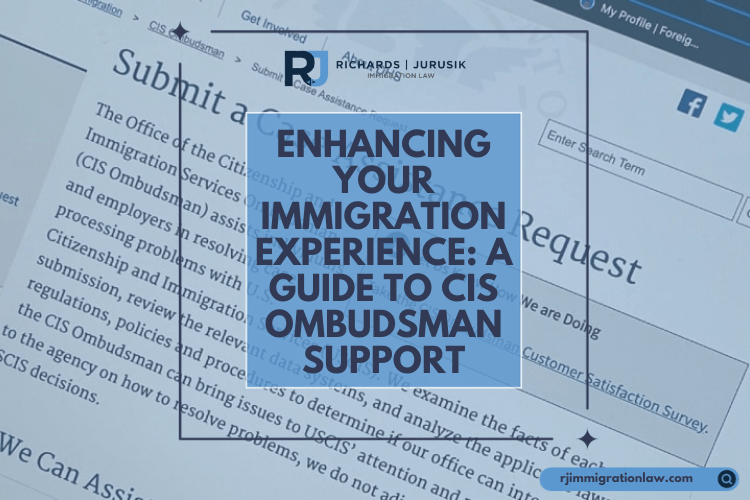As your time in the United States on a non-immigrant visa ends, having a well-structured exit plan is crucial. This ensures you leave the country in compliance with U.S. immigration laws and helps you manage various aspects of your life intertwined with your stay. Here are vital steps to prepare for your departure:
1. Understand Your Visa Expiration Date
Understanding your visa expiration date is a critical first step in your exit plan from the United States as a non-immigrant visa holder. This date determines the legally permissible length of your stay, and ensuring you depart by this date is essential to avoid legal complications. Here’s what you need to know:
- Check Your Visa and I-94 Form
- Visa Expiration Date: Your visa has an expiration date printed on it, but this is not the only date you need to be aware of. This date indicates when you can use the visa to enter the U.S. but not how long you can stay.
- I-94 Arrival/Departure Record: The I-94 form is the critical document to refer to for your allowed duration of stay. You can access your I-94 electronically here. The “Admit Until Date” on your I-94 is when you must depart the U.S.
- Understanding the Difference
- Many people confuse the visa expiration date with their authorized period of stay. If your I-94 is valid, your visa could expire in the U.S. without causing issues. Conversely, you must leave the U.S. by the date on your I-94, even if your visa is still valid beyond that date.
- Consequences of Overstaying
- Immediate Consequences: Overstaying your authorized period can result in being out of status. This means you lose your legal immigration status and any benefits associated with your visa, like the ability to work or study.
- Future Visa Applications: Overstaying can significantly affect future U.S. visa applications. Depending on the length of your overstay, you may be barred from re-entering the U.S. for a period.
- Long-Term Overstays: Overstaying for more than 180 days can result in a three-year ban from the U.S.; overstaying for over a year can result in a ten-year ban.
- Grace Periods
- Some visas may have a grace period after the I-94 expiration date, allowing you to prepare for departure without violating your status. Confirm if your visa type includes such a grace period.
- Extensions and Changes of Status
- If circumstances require you to stay longer than expected, you may apply for an extension or change of status before your I-94 expires. This process involves submitting a request to USCIS with appropriate documentation and reasons for the extension/change of status.
2 . Notify Your Employer or School
When you’re in the United States on a work or student visa, notifying your employer or educational institution about your departure plans is a crucial step in your exit strategy. This is a courtesy and an essential part of maintaining professional relationships and ensuring a smooth transition. Here’s what you need to consider:
- For Those on a Work Visa
- Timing of Notification: Aim to inform your employer as soon as your departure plans are specific. This gives them ample time to manage the transition, whether finding a replacement or reallocating their responsibilities.
- Formal Notification: Write or email a letter to your supervisor and HR department stating your intended last day of work and the reason for your departure. Keep it professional and express gratitude for the opportunity.
- Discussing Transition Plans: Be prepared to discuss how your work will be handled after your departure. Offer to train a successor or document your ongoing projects to ensure a smooth handover.
- Exit Interview: Some companies conduct exit interviews. Use this opportunity to provide constructive feedback and end on a positive note.
- For Students on a Visa
- Informing Your Educational Institution: Notify the international students’ office or your academic advisor about your departure plans. They may have specific procedures for students completing or leaving their program.
- Academic Records: Ensure all academic requirements are completed and request copies of your transcripts or certificates. These documents may be required for future educational or professional endeavors.
- Scholarship or Financial Aid: If you have a scholarship or financial aid, discuss with the relevant office how your departure will affect these arrangements. Your scholarship or aid agreement may have stipulations you must comply with.
- Seeking Support
- Assistance with Transition: Many employers and educational institutions offer support services for international workers and students. These may include counseling, job placement assistance, or help with legal and immigration queries.
- Networking and References: Before leaving, ask for references or letters of recommendation, which can be invaluable for your future career or educational pursuits.
- Alumni Networks: If you’re a student, inquire about joining the institution’s alumni network to stay connected and access future resources.
- Legal and Administrative Considerations
- Work Visa Holders: Confirm if there are any legal or administrative steps you need to undertake with your employer regarding your visa status.
- Students on F-1 Visas: If you’re on an F-1 visa, your school must update your status in the Student and Exchange Visitor Information System (SEVIS).
3. Settle Financial and Legal Matters
Before departing the United States, non-immigrant visa holders must address and settle any financial and legal matters to avoid future complications. This process involves several key steps to ensure a clean and trouble-free transition out of the U.S.
- Closing or Converting Bank Accounts
- Evaluate Your Needs: Determine whether you need to close your bank accounts or if it’s more beneficial to maintain them, perhaps for future visits or ongoing financial commitments in the U.S.
- Process for Closing Accounts: If you close your accounts, contact your bank to understand the process. This might involve visiting a branch in person or completing specific procedures online.
- Transferring Funds: Plan how you will transfer your funds. Consider exchange rates and transfer fees. International wire transfers or online services like PayPal or Wise (formerly TransferWise) can be options.
- Keep Records: Retain copies of your final bank statements and any documentation confirming the closure of your accounts for your records.
- Paying Off Outstanding Debts and Bills
- List All Debts and Bills: Compile a comprehensive list of debts (credit cards, loans) and regular bills (utilities, rent, subscriptions).
- Settle Debts: Pay off any outstanding balances. For more significant debts, contact your creditors to discuss any necessary arrangements for repayment from abroad.
- Finalize Utility and Service Bills: Notify service providers (electricity, water, internet, phone) of your departure date and settle any final bills. Don’t forget to cancel any unnecessary ongoing subscriptions or services.
- Tax Obligations
- Understand Your Tax Requirements: Non-resident aliens in the U.S. have specific tax filing requirements. It’s crucial to determine if you need to file a tax return for the year of your departure.
- File Your Taxes: If required, file your tax return, considering any income earned during your stay in the U.S. You may be eligible for a refund, or you may owe taxes.
- Seek Professional Advice: Tax laws can be complex, especially for non-residents. Consider consulting a tax professional with experience in non-resident tax issues to ensure compliance and take advantage of any possible tax benefits.
- Legal Considerations
- Review Legal Obligations: Ensure you’re not leaving any legal loose ends. This includes checking lease agreements, contracts, or any legal matters requiring your attention.
- Consult an Attorney if Needed: If you have any ongoing legal disputes or obligations, consult with an attorney to understand how your departure will affect these matters.
4. Healthcare and Insurance
Addressing healthcare and insurance matters is crucial as you prepare to depart from the United States on a non-immigrant visa. This ensures that you maintain your health and understand the implications of leaving the U.S. on your insurance coverage. Here’s a detailed breakdown of what you should consider:
- Scheduling a Final Health Check-Up
- Importance of a Final Check-Up: Schedule a final health check-up before departure. This is especially important if you have ongoing health conditions or have received treatment in the U.S.
- Medication and Prescriptions: Discuss any medicines you take with your healthcare provider. Get the necessary prescriptions and understand how to obtain these medications in your home country.
- Medical Records: Request copies of your medical records, including immunizations, treatments received, and any significant medical history. These documents are vital for continuity of care when you return to your home country or move elsewhere.
- Dental and Vision Check-Ups: Consider also having a dental check-up and a vision exam, especially if these services are covered under your current insurance plan.
- Understanding Post-Departure Insurance Coverage
- Review Your Health Insurance Policy: Carefully review your health insurance policy to understand what coverage extends beyond your stay in the U.S.
- Coverage During Travel: Check if your insurance covers emergency medical care when you return to your home country.
- International Health Insurance: If you are moving to another country rather than returning home, consider whether you need to purchase international health insurance.
- Insurance for the Transition Period: There may be a gap between leaving the U.S. and obtaining new insurance in your home country. Explore options like travel insurance to cover this period.
- Handling Insurance Paperwork and Notifications
- Notify Your Insurance Provider: Inform your health insurance provider of your departure date. Ask about any necessary steps to terminate your coverage or convert it to a plan suitable for your future needs.
- Keep Documents Handy: Retain any documentation related to your health insurance, including policy information and coverage details, for your records.
- Consider Additional Insurance Needs
- Life and Disability Insurance: If you have life or disability insurance policies, check how your departure from the U.S. affects them. You might need to update your policy or make new arrangements.
- Rental or Property Insurance: If you have been renting or owning property in the U.S., ensure that your rental or homeowner’s insurance is updated or terminated as needed.
5. Housing and Accommodations
As you end your stay in the United States on a non-immigrant visa, handling housing and accommodation matters efficiently is essential. This includes dealing with your current living situation and managing your belongings. Here’s a comprehensive guide to navigating this process:
- Notifying Your Landlord and Organizing Lease Termination
- Understand Your Lease Terms: Review your lease agreement to understand the terms regarding notice periods and early termination. This will help avoid any penalties or legal issues.
- Providing Adequate Notice: Inform your landlord of your departure as soon as your plans are confirmed, adhering to the notice period specified in your lease.
- Documenting the Condition of the Property: Before leaving, take photos or videos of the property to document its condition. This can help you get your full security deposit back.
- Security Deposit: Inquire about the process for the return of your security deposit. Ensure that any conditions for its return, such as cleaning or repairs, are met.
- Utilities and Services: Remember to cancel or transfer utilities and services like electricity, gas, water, internet, and cable.
- Selling or Donating Furniture and Large Items
- Inventory of Items: List all the items you won’t be taking with you. Categorize them into what you can sell, donate, or need to dispose of.
- Selling Items: To sell furniture and oversized items, use platforms like Craigslist, Facebook Marketplace, or local community boards. Start this process well before your departure date.
- Donation Options: You can donate items to local charities, shelters, or thrift stores. Some organizations offer pick-up services for large items.
- Disposal of Unwanted Items: For items that are neither sellable nor donatable, check the local disposal regulations and arrange for proper disposal or recycling.
- Cleaning and Repairs
- Responsibility for Cleaning: Leave the property clean to comply with most lease agreements and help ensure the return of your security deposit.
- Handling Repairs: Address any damage or wear and tear during your tenancy. Minor repairs can often be managed yourself, while more significant issues should be discussed with your landlord.
- Forwarding Your Mail
- Update Your Address: Notify friends, family, and any services of your change of address.
- Mail Forwarding Services: Set up mail forwarding with the United States Postal Service (USPS) or a private service to ensure you don’t miss important correspondence.
- Arranging Temporary Accommodation
- Plan for Your Last Few Days: If you need to vacate your current housing before you depart from the U.S., arrange for temporary accommodation, such as a hotel or Airbnb.
6. Transportation Arrangements
Making appropriate transportation arrangements is crucial as you prepare to leave the United States at the end of your non-immigrant visa. It involves booking travel and considering several other essential factors to ensure a smooth journey. Here’s a comprehensive guide to managing your transportation arrangements:
- Booking Your Travel in Advance
- Plan Early: Start planning your departure as soon as you know your exit date. Early planning can provide better rates and more options for flights or other modes of travel.
- Comparing Prices: Use travel comparison websites to find the best deals on flights, trains, or buses. Consider different dates or airports for potentially lower prices.
- Flexible Tickets: If there’s a chance your plans might change, consider booking flexible or refundable tickets, even if they cost a bit more.
- Checking Travel Advisories and Restrictions
- Government and Airline Websites: Regularly check the websites of your home country’s foreign affairs department and the U.S. State Department for any travel advisories or restrictions that might affect your journey.
- Health and Safety Protocols: Be aware of health-related travel advisories, such as COVID-19 restrictions or vaccination requirements.
- Visa Requirements for Transit: If your travel involves transiting through other countries, check their visa requirements and entry rules.
- Arranging Transportation to the Airport or Station
- Plan Your Route: Decide whether you’ll use public transportation, a taxi, a rideshare service, or if a friend will drive you. Consider the time of day and traffic patterns.
- Allow Extra Time: On your day of departure, allow extra time for travel to the airport or station to account for unexpected delays.
- Managing Luggage and Belongings
- Luggage Limits: Check the luggage allowances for your flight and pack accordingly. Excess baggage can be expensive.
- Shipping Options: If you have more belongings than you can carry, consider shipping options or storage solutions.
- Finalizing Documents
- Travel Documents: Ensure your passport, visa, and other necessary documents are in order and easily accessible.
- Emergency Contacts: Keep a list of emergency contacts, including your country’s embassy or consulate in the U.S. and your transit or destination countries.
- On the Day of Departure
- Online Check-In: Take advantage of online check-in services to save time at the airport.
- Airport Arrival Time: Arrive at the airport well before your flight, considering extra time for security and any potential delays.
7. Gather Important Documents
Gathering and organizing essential documents is crucial to your exit plan when departing the United States on a non-immigrant visa. These documents serve as proof of your activities and status in the U.S. and are essential for future personal, educational, or professional endeavors. Here’s what you need to focus on:
- Employment Records
- Contract and Pay Stubs: Keep copies of your employment contract, recent pay stubs, and other relevant work-related documents.
- Performance Reviews and References: Secure copies of performance reviews, which can be helpful for future employment. Additionally, ask for reference letters from your supervisors or colleagues.
- Educational Certificates and Records
- Diplomas and Transcripts: Ensure you have copies of your diplomas, certificates, and transcripts from any educational institutions you attended in the U.S.
- Letters of Recommendation: If applicable, obtain letters of recommendation from your professors or academic advisors.
- Medical Records
- Health History: Secure a copy of your medical history, including records of vaccinations, allergies, past surgeries, and any ongoing treatments.
- Prescription Records: If you are on medication, get a copy of your prescription history and a letter from your doctor explaining your medical needs.
- Legal and Immigration Documents
- Visa and I-94 Form: Keep a copy of your visa and the I-94 Arrival/Departure Record.
- Social Security Number (SSN) and Driver’s License: Keep copies of these documents if you have an SSN or a U.S. driver’s license.
- Passport Validity
- Check Expiration Date: Ensure that your passport is valid for at least six months beyond your planned departure date from the U.S. Many countries require this for entry.
- Renew if Necessary: If your passport is nearing expiration, renew it well before your travel date.
- Financial Documents
- Bank Statements: Gather recent bank statements, especially if you are closing your accounts.
- Credit Reports: Consider obtaining a copy of your credit report for your records.
- Backup and Accessibility
- Digital Copies: Make digital copies of all essential documents. Store them securely in the cloud or USB drive for easy access.
- Emergency Access: Leave copies of critical documents with a trusted friend or family member in case of emergencies.
8. Shipping Personal Belongings
When preparing to leave the United States at the end of your non-immigrant visa, deciding how to handle your personal belongings is a significant task. It involves determining what to take with you, what to sell, what to donate, and how to ship the items you keep. Here’s a detailed approach to managing this process:
- Deciding What to Take, Sell, or Donate
- Inventory Your Belongings: Start by making a detailed inventory of your belongings. This will help you decide what to keep, sell, or donate.
- Assess Value and Necessity: Evaluate each item’s practicality, sentimental value, and cost-effectiveness of shipping versus replacing. Sometimes, selling bulky items and repurchasing them later is more economical.
- Organize a Sale: For items you decide to sell, organize a garage sale or list them on online marketplaces. This can be a great way to reduce the volume of your belongings and earn some extra money.
- Identify Donation Opportunities: For items in good condition that you choose not to keep or sell, consider donating them to local charities, shelters, or thrift stores.
- Using International Shipping Services
- Research Shipping Companies: Look for reputable international shipping companies. Compare their rates, services, insurance options, and customer reviews.
- Understand Customs Regulations: Be aware of the customs regulations of your destination country. Certain items may be restricted or duties and taxes may be incurred.
- Choose the Right Service: Decide between air and sea freight based on your budget, the volume of your belongings, and how quickly you need them to arrive.
- Packing for Shipping: Pack your items securely, using appropriate materials to protect them during transit. Label each box clearly with your name, destination address, and a list of contents.
- Documenting and Insuring Your Belongings
- Inventory for Shipping: Make a detailed inventory of your shipping items. This will be important for insurance purposes and customs declarations.
- Insurance Coverage: Consider purchasing additional insurance coverage for your shipped items, especially for valuable or fragile belongings.
- Timing and Coordination
- Coordinate Arrival Times: Plan the shipping so that your items arrive around when you do. You don’t want your belongings to come too early or too late.
- Communication with the Shipping Company: Maintain open communication with the shipping company to track your shipment and inform you of any changes or delays.
9. Notifying the U.S. Government
When your time in the United States ends as a non-immigrant visa holder, completing any required notifications to U.S. government authorities regarding your departure is essential. This is a matter of compliance and helps maintain a clear record for future visits or visa applications. Here’s what you need to know:
- Informing the U.S. Citizenship and Immigration Services (USCIS)
- Change of Address: If you change your address during your stay in the U.S., you must notify USCIS. This is a legal requirement, typically done within ten days of moving. You can submit a change of address online through the USCIS Change of Address page.
- Departure Notification: While most non-immigrant visas generally do not require formal departure notification, keeping your records updated with USCIS is crucial, especially if you’ve had any interactions or applications processed with them during your stay.
- Updating the Internal Revenue Service (IRS)
- Notify the IRS if You’re Filing Taxes: If you have tax obligations in the U.S., inform the IRS of your departure. This can be done when filing your final tax return by including your new address abroad.
- Form 8843 for Non-Residents: Non-resident aliens in the U.S. under specific visa categories must file Form 8843, “Statement for Exempt Individuals and Individuals with a Medical Condition,” even if they have no income in the U.S.
- State and Local Government Notifications
- Driver’s License and Vehicle Registration: If you have a U.S. driver’s license or a registered vehicle, notify the relevant state DMV of your departure and follow their procedures for surrendering licenses or plates if not returning.
- Local Government Offices: Depending on your circumstances, other local or state offices might require notification, such as if you’ve been receiving state-specific benefits or services.
- Social Security Administration (SSA)
- Non-Citizens Leaving the U.S.: If you’ve been working in the U.S. and have a Social Security Number, you don’t usually need to notify the SSA of your departure. However, if you’ve been receiving Social Security benefits, inform the SSA of your change in residence.
10. Stay Informed About Immigration Laws
Maintaining an awareness of the ever-evolving U.S. immigration laws is essential, particularly if you plan future visits or stay in the United States. Immigration policies can change, impacting visa requirements, eligibility, and procedures. Here’s how you can stay informed:
- Regularly Check Official Sources
- U.S. Citizenship and Immigration Services (USCIS): USCIS is the primary authority on U.S. immigration laws. Their website provides the latest information on policy changes, visa regulations, and application procedures.
- U.S. Department of State: The U.S. Department of State website offers information on visa policies, travel advisories, and consular services.
- Subscribe to Newsletters and Alerts
- Immigration Law Firms and Consultants: Many law firms and immigration consultants offer newsletters or alerts. Subscribing to these can provide expert insights into the implications of law changes.
- Government Newsletters: Sign up for newsletters or email alerts from USCIS and other relevant U.S. government agencies.
- Utilize Social Media and Online Forums
- Social Media Channels: Follow the official social media accounts of USCIS and the U.S. Department of State for timely updates.
- Online Immigration Forums: Platforms like VisaJourney or Trackitt can be helpful for community insights and experiences, but always cross-reference with official sources.
- Attend Seminars and Webinars
- Immigration Workshops: Some embassies or consulates, as well as immigration law firms, host workshops or webinars discussing changes in U.S. immigration laws and policies.
- Community Groups: Participate in events hosted by expat or immigrant community groups, often addressing immigration topics.
- Consult with Immigration Professionals
- Seek Professional Advice: For complex scenarios or significant changes in immigration law, consult with an immigration attorney. They can provide personalized advice relevant to your specific situation.
- Understand the Impact on Your Specific Visa Type
- Tailor Your Research: Focus on understanding how changes in the law may affect your particular visa category, whether it’s a student, work, or tourist visa.
- Stay Aware of Country-Specific Agreements
- Bilateral Agreements: Some changes in immigration law might affect nationals from certain countries. Stay informed about any agreements between the U.S. and your home country.
- Prepare for Future Applications
- Document Requirements: Keep track of any new documentation or processes required for future visa applications.
- Application Deadlines and Quotas: Be aware of changes in application deadlines, especially for visas with annual caps or quotas.
Conclusion
After your non-immigrant visa expires, preparing to leave the U.S. involves several essential steps. Each step ensures a smooth transition, from settling your financial and legal matters to making necessary notifications. Remember, while this guide provides a general overview, each individual’s situation may vary.
Subscribe to Our Resources Blog
Schedule a Consultation with an Immigration Lawyer
We Can Help!
You may have questions regarding your non-immigrant visa. We invite you to contact our team at Richards and Jurusik for detailed guidance and assistance. We aim to provide the most accurate and up-to-date information to make your immigration process smoother and less stressful. The immigration lawyers at Richards and Jurusik have decades of experience helping people to work and live in the United States. Read some of our hundreds of 5-star client reviews! Contact us today to assess your legal situation.







